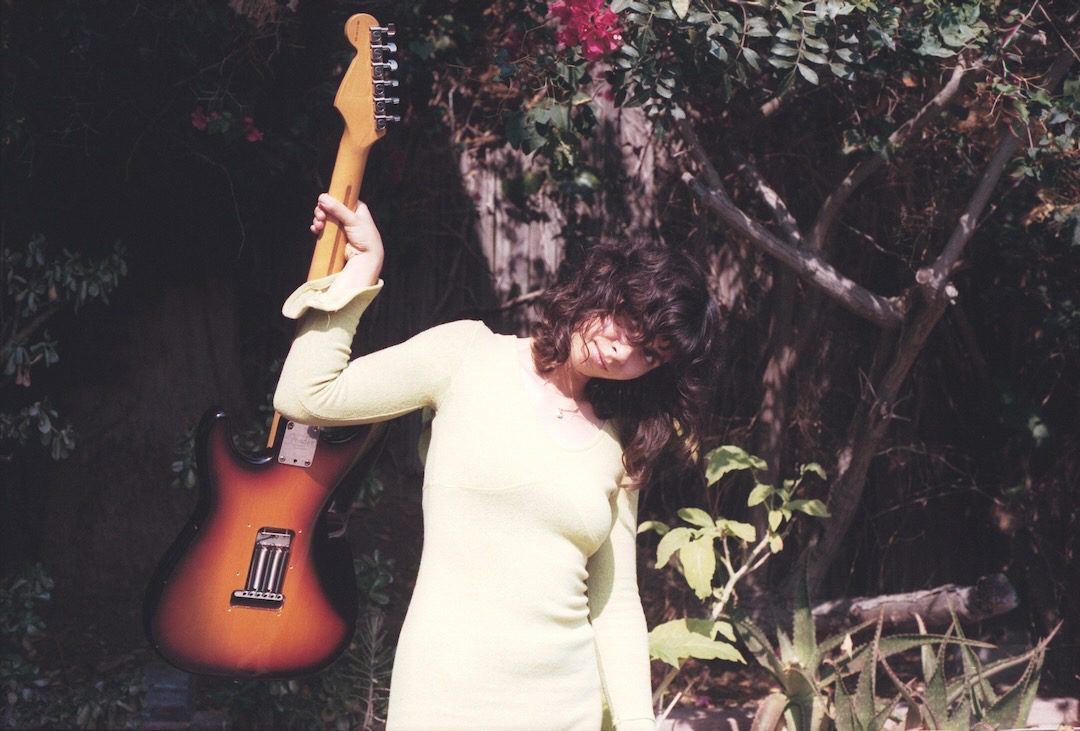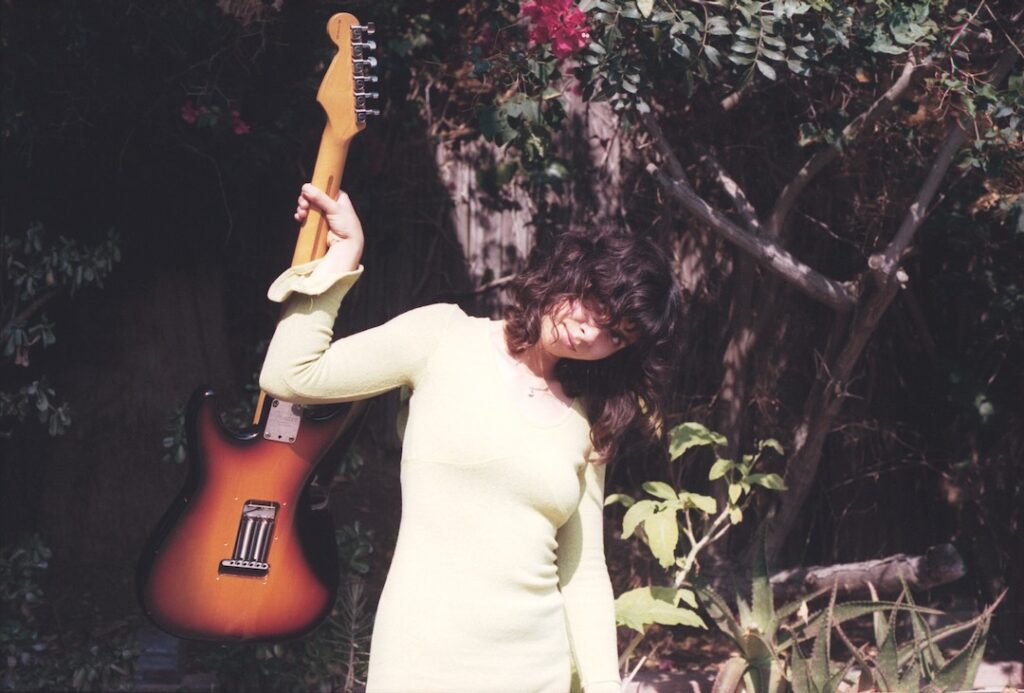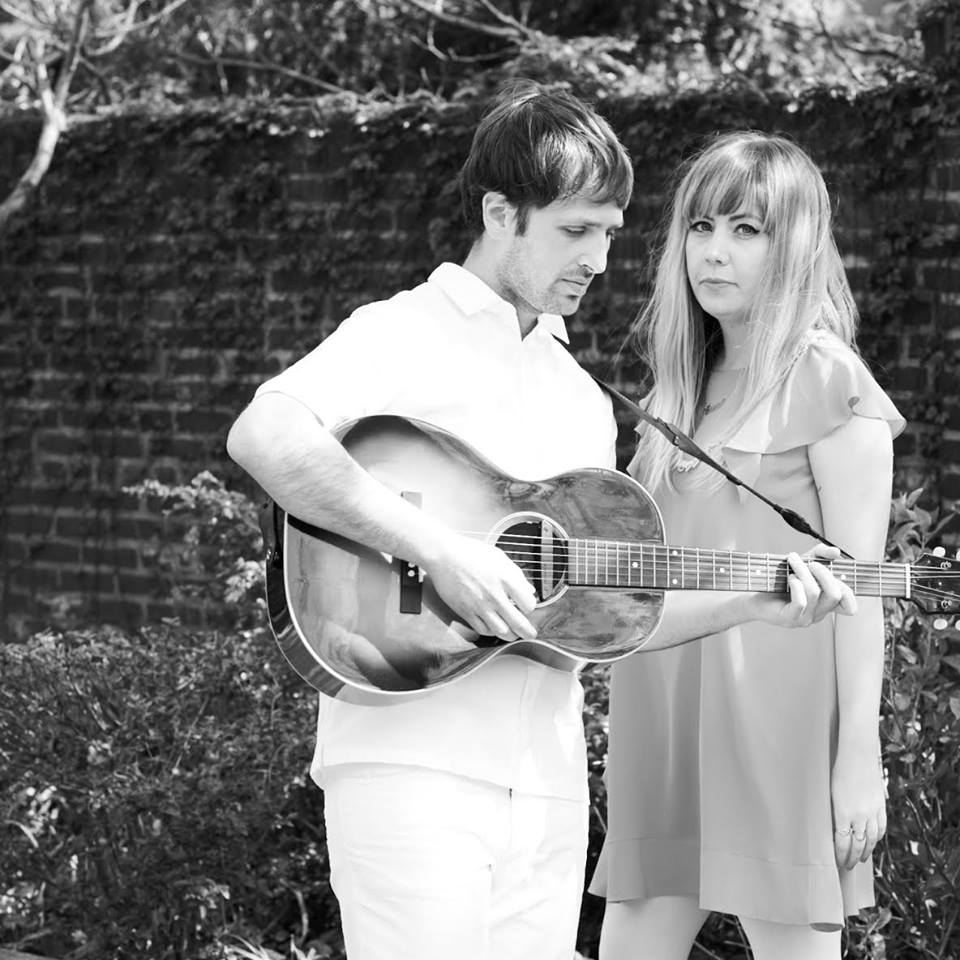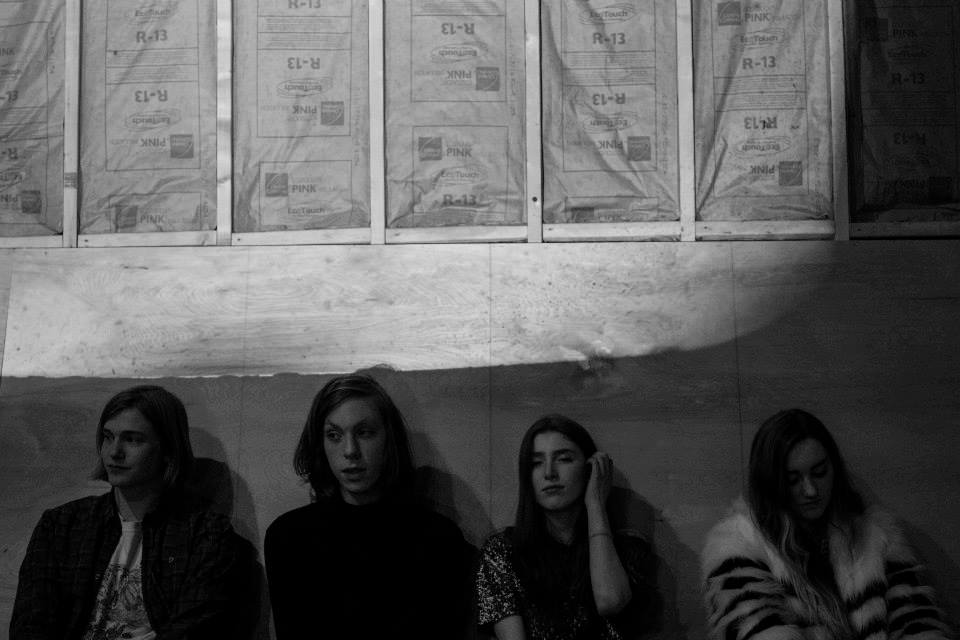

Singer and multi-instrumentalist Natasha Janfaza returned to her hometown of Los Angeles after spending seven years in Washington D.C., where she attended Georgetown University, but she couldn’t leave the local music scene behind. “I decided that I wanted to start fresh and become integrated in the scene here,” Janfaza says on a recent phone call from the West Coast, “but, ultimately, my roots [in D.C.] are so strong that, over the pandemic, we pretty much made this album together.”
That album is Vanilla, the eight-track debut from Tunnel, set for release on July 15 via DC label House of Joy. Janfaza handled all songwriting duties, sings and plays a good chunk of the instruments. Her collaborators for the release are producers and multi-instrumentalists D. Saperstein and Owen Wuerker, both of whom Janfaza knew from the D.C. scene, and drummer Brendan Canty, known for his work with Fugazi, Rites of Spring and The Messthetics. Together, they made an album that’s equally noisy and sublime, harking back to 1990s indie rock despite a very 2020s recording process (save for one song, “Figure 5,” which was written back in 2019, when Janfaza was still living in D.C., the album came together through remote collaboration). Tunnel’s short East Coast tour this month will mark the first time the full band has played together on the same stage. The title track, out officially on July 8, premieres on Audiofemme today.
“There were several rounds of me trying to figure out what songs were going to be on the album, what the album was going to look like,” she says. “At one point, I was like, I’m going to choose 10 of my favorite songs that I’ve written and it’s going to be guitar and vocals and that’s it. I was originally thinking very bare bones.”
Janfaza tracked a lot of the songs herself, using Logic, and ultimately ended up changing directions. “I decided, why not flesh this out?” she remembers. She thought of two people with whom she would want to play: her good friend Saperstein, as well as Canty, who she had known for a while, after meeting him through a college professor.
Then, while visiting family in D.C., she was able to connect in person with her collaborators. During a songwriting session, she says, Saperstein took on a producer role, helping Janfaza decide on her best material for the album. “This was really helpful for me refining my catalog of songs. I have a lot of stuff and I can do stuff in a bunch of different styles,” she says. “I would say that’s where we took this knife, this sharpening knife, and made everything the best that it could be.”
Growing up in L.A., Janfaza played violin. “It really was my passion from the start,” she says of the instrument. “I knew that I wanted to do music. I even considered going to school for music.” However, a repetitive stress injury prompted Janfaza to rethink what instrument she should play. “I lost interest at a point in college with violin,” she says. “I felt like it was really competitive and not the healthiest environment and it wasn’t really conducive to creativity, it was more like music as a sport, I would say.”
So, by college, Janfaza turned towards rock music. “Not many people discover that they want to be a rock ‘n’ roller that late,” she admits. But, “That was when I felt like there was really a need for me to take that path and go to shows and be involved in the scene. I just needed to feel like I had a place at my school and I didn’t feel connected.”
“This was how I discovered my voice. My confidence improved a lot because I feel really connected to what I’m doing and there’s so much support around me,” she adds.
Janfaza picked up other instruments during this journey as well. “I was really new to guitar at the time,” she says. “I’ve gotten a lot better, but I still don’t consider myself a technical guitar player. It was just punk music: show up, it’s about your energy. It’s about your effort and your passion and expression.”
She got a firsthand view of how music communities come together, particularly when she wanted to organize a benefit for gun control law reform. She reached out to other locals in a Facebook group and was able to set up the benefit at St. Stephen, a church that’s known for its longtime connection to the D.C. punk scene. “These were the kind of events that made me feel like there was substance to my involvement,” she says. “I wasn’t just going to shows, I was also trying to organize and bring people together.”
These days, Janfaza, who also plays in the band Taciturn, is also familiarizing herself with the L.A. scene. “I’m trying to be more involved and really build community here,” she says.
She’s also thinking about the role of music in a time filled with so much strife. “With everything going on in the world, in our country at least, with regards to abortion and gun laws and all that, it’s really depressing. It’s grim. What role does my music have to do in this really uncertain future?” Janfaza considers. “That being said, I feel like I have to keep going and we’ve got to live day by day.”
She also sees the value of music during difficult periods. “I don’t think that we can fight back if we’re burned out. Things like music and art are really important. They bring us together. They re-energize us. They give us inspiration,” she says. “Otherwise, if you only look at the reality, which is really depressing, we’re not going to have the energy to act.”
Follow Tunnel on Instagram for ongoing updates.




